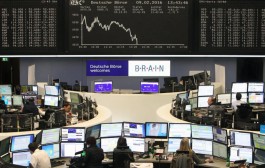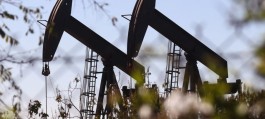Oil prices fell on Tuesday as the market waited to see if Iraqi exports through the Turkish port of Ceyhan would resume, which could ease supply tightness caused by OPEC+ cuts, while China's ailing economy still overshadowed the global demand outlook.
By 0241 GMT, Brent crude fell eight cents to $84.38 a barrel, and US West Texas Intermediate crude fell seven cents to $80.65 a barrel.
A source in the office of Iraqi Oil Minister Hayan Abdul Ghani told Reuters on Monday that the minister had arrived in the Turkish capital, Ankara, to discuss several issues, including the resumption of oil exports through the port of Ceyhan.
Turkey stopped Iraq's exports of 450,000 barrels per day through a pipeline extending from northern Iraq to Turkey on March 25, after a ruling in an arbitration case issued by the International Chamber of Commerce.
The entry of more Iraqi crude oil into the market may help alleviate the supply crisis of sour crude caused by the prolongation of the OPEC + alliance, which includes the Organization of the Petroleum Exporting Countries (OPEC) and its allies, the duration of production cuts and increase their size.
Meanwhile, pessimism about the economic outlook in China, the world's second largest oil consumer, put pressure on prices and increased concerns about fuel demand.
And Eurasia Group said in a note that the Chinese economic weakness weighs heavily on oil prices and will put a ceiling on them this year, especially since Beijing seems committed to avoiding large-scale fiscal stimulus.
A preliminary Reuters poll showed that it is expected that crude oil and gasoline inventories in the United States fell last week, which curbed the decline in oil prices.
The American Petroleum Institute is due to publish inventory data later on Tuesday. The Energy Information Administration, the statistical arm of the US Department of Energy, will release its data on Wednesday.
A note from ANZ Research said the market was also focused on preliminary U.S. purchasing managers' index data for August and the Federal Reserve's annual Jackson Hole economic symposium scheduled for later in the week.
US economic data over the past few weeks supported expectations that the central bank will keep interest rates high for a longer period, which weakens the prospects for demand for oil and a wide range of consumer goods.







































